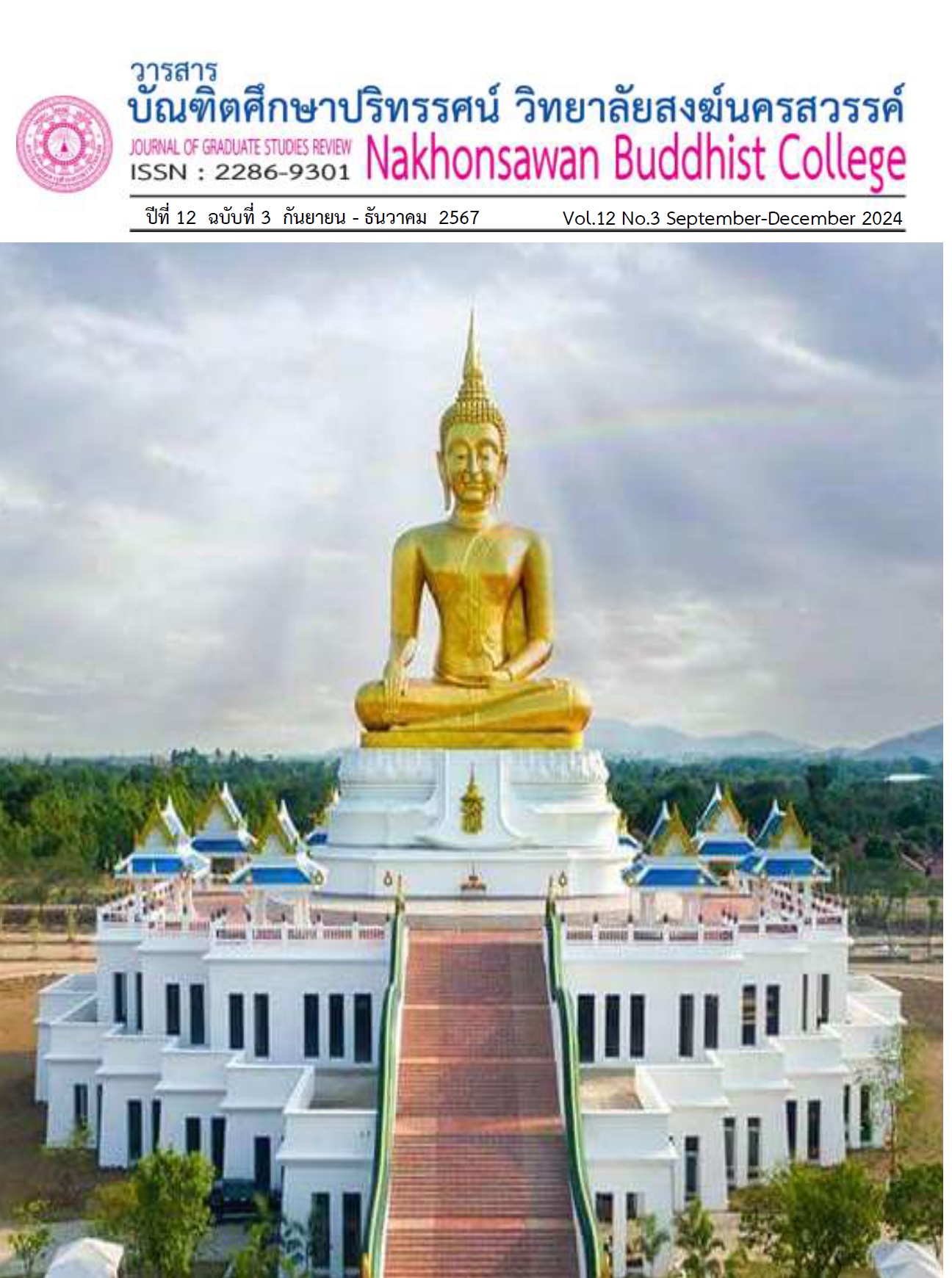Guidelines for risk management of academic affairs according to threefold training of phrapariyattidhamma schools under the department of general education area IV
Main Article Content
Abstract
The objectives of this Research Article were: 1) to study the status of the risk management of the academic affairs of Phrapariyattidhamma Schools under the Department of General Education Area 4, and 2) to present the guidelines for the risk management of the academic affairs according to the Threefold Training (Sikkhàttaya) of Phrapariyattidhamma Schools under the Department of General Education Area 4. This research applied Quantitative Research by collecting the data from 155 samples and using the percentage, mean, and standard deviation, and Qualitative Research with Semi-structured Interviews from 9 key informants and the content analysis for the data analysis. The research results were as follows:1. Overall, the status of the risk management of the academic affairs of Phrapariyattidhamma Schools under the Department of General Education Area 4 was at a high level. When considering each aspect, level. it was found that the educational supervision was at the highest level. Then, it was the assessment and evaluation. Moreover, the curriculum administration was at the lowest level. 2. The guidelines for the risk management of the academic affairs according to the Threefold Training of Phrapariyattidhamma Schools under the Department of General Education Area 4 consisted of 1) the curriculum administration found that the administrators should apply Sãla-sikkhà (training in higher morality) for dealing with the risk, Samadhi-sikkhà (training in higher mentality) for developing the intention, and dealing with the situations, and Pannà-sikkhà (training in higher wisdom) for analyzing and solving the problems, and promote Samadhi-sikkhà and Pannà-sikkhà for the personnel and students on the risk management, 2) the teaching and learning management found that the administrators should apply Sãla-sikkhà for analyzing and evaluating the risk in the schools by surveying and specifying the risk, analyze the risk happening from inability in analyzing and solving the problems for preventing the teaching and learning problems, and plan the problem solving in teaching and learning with Pannà-sikkhà, 3) the educational supervision found that the administrators should analyze and evaluate the risk with the important data for planning the risk management appropriately, and analyze the risk in teaching and learning for improving the teaching process suitable to the demand of students, and 4) the assessment and evaluation found that the administrators should apply Samadhi-sikkhà and Pannà-sikkhà for evaluating, planning and developing the schools by the learning evaluation and self-development of the students and personnel.


